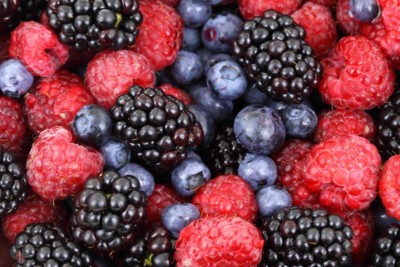When it comes to keeping your veins robust and radiant, smart lifestyle choices can go a long way to paying healthy dividends down the road.
Roughly 40 million Americans suffer from varicose veins, often due to obesity, a sedentary lifestyle, or multiple pregnancies. Varicose veins come about when blood valves become weak, allowing blood to pool in the veins instead of pumping blood back toward the heart.
Before and After Photos

The good news is that what you consume can play a pivotal role in the battle against spider veins. And fortunately, dietary choices abound that can help enhance blood flow, minimize the effects of spider veins, and prevent their occurrence in the future. Below, we’ll share five great ways that diet can help you ward off those spindly, windy, unsightly leg invaders and boost the overall health of your veins.
1. Spider Veins Love Added Sugar
Natural sugars found in fruits and vegetables play a positive role in maintaining good health, but processed added sugars that run rampant in the typical American diet can place added stress on the vascular system and can aggravate the effects of spider veins.
High consumption of added sugar has been linked to weight gain and obesity. Extra body weight can generate additional pressure on the blood vessels in the lower limbs, increasing the likelihood of developing spider veins. Foods to avoid that are the biggest culprits when it comes to added sugar are soft drinks, cakes, cookies, fruit and sports drinks, dairy desserts such as ice cream, and breakfast cereals.
2. Eat Less Salt
We all love a little salt in our chicken soup but salt contains sodium, and too much of it can encourage swelling and water retention which can lead to unhealthy veins. A diet high in sodium can lead to an increase in the volume of blood flowing through the body putting added pressure on your veins and valves. Chronic water retention from long-term excess sodium intake can damage and weaken fragile blood vessel walls, inducing spider veins.
High-sodium foods to avoid include processed foods like prepared soups, frozen dinners, restaurant foods, processed meats (hot dogs), salted nuts, chips, and many kinds of cheese. Instead of that bag of potato chips, reach for a fresh carrot, apple, or celery stick, grill your meat at home and instead of processed sauces, invent your own favorite homemade dressing.
3. Eat Enough Fiber
Dietary fiber is an essential component of any vein-healthy diet. Fibers are indigestible complex carbohydrates found in plant foods, and they play a crucial role in healthy  bowel function. Chronic constipation from a lack of fiber can put unnecessary pressure on your blood vessels, especially the veins in the lower legs that need to work that much harder against gravity to pump blood back up toward the heart. The strain from the effort can weaken your veins and, over time, contribute to spider veins.
bowel function. Chronic constipation from a lack of fiber can put unnecessary pressure on your blood vessels, especially the veins in the lower legs that need to work that much harder against gravity to pump blood back up toward the heart. The strain from the effort can weaken your veins and, over time, contribute to spider veins.
A diet high in fiber can lower your risk of spider veins and may also help alleviate painful constipation symptoms. The best sources of soluble fiber include:
- Figs, plums, prunes, berries, bananas, avocados, and grapes
- Legumes such as peas, beans, and soybeans
- Broccoli, carrots, green beans, cauliflower, zucchini, and leafy greens
- Onions, sweet potatoes, and squash
- Whole grain bread and cereals such as oats, rye, chia, barley, and flaxseeds
- Unsalted nuts
4. Flavonoids Are on Your Side
Rutin is a bioflavonoid that may help fortify the walls of your veins and enhance the functioning of your circulatory system. Studies have demonstrated rutin-based flavonoids can contribute to alleviating inflammation, aches, and discomfort from varicose veins.
Buckwheat is one of the most excellent natural sources of rutin as are blackberries, apples, apricot, and grapes. Buckwheat groats can be used to prepare delicious hot porridge, and buckwheat flour is delectable in bread and pastries; plus buckwheat is an excellent substitution for goods made with refined white flour like pasta, rice, and bread.
5. Drink Lots of Water
Perhaps underrated but undoubtedly no less important for the prevention of spider veins is making sure you drink enough water. Efficient water hydration can help prevent constipation, improve blood circulation, and counteract the dehydrating effects of coffee, tea, and alcohol on the body.
A reasonable water intake goal is to try and drink at least 100-250 oz. of water a day. Adding lemon, honey, and cayenne pepper can zest up your water snack and increase your metabolism.
Are unsightly spider veins making you feel self-conscious at the golf course, on the tennis court or at the beach? Dr. Kovacs is here to answer your questions, address any concerns, and provide the best advice on how to prevent and treat varicose and spider veins for your unique circumstances.
